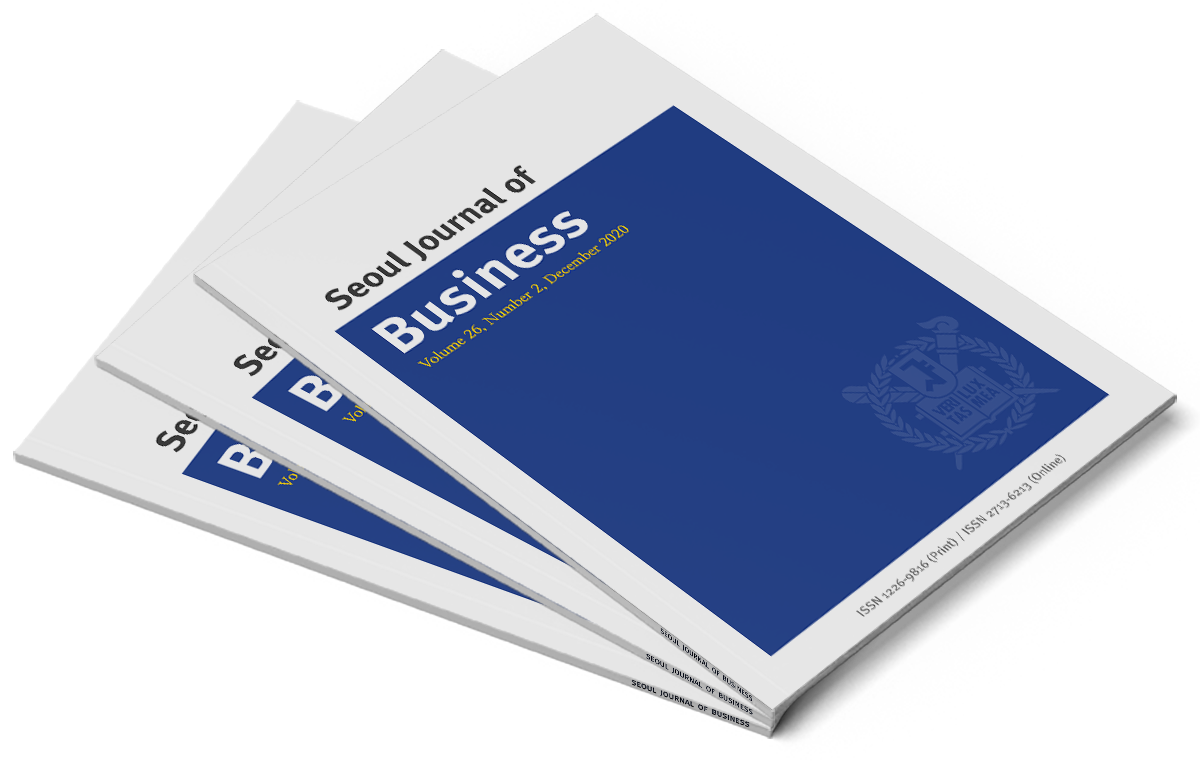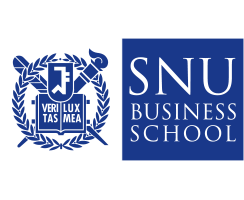Recent Issues
Vol.30/1 (2024, June)
The Measurement of Efficiency of Asia-Pacific Airports: An Application of Network Data Envelopment Analysis
Author Sungbin Kim, Hyonchang Kim, Nikita Kim, Jungsuk Oh
Keywords DEA, efficiency, airport performance, Asia-Pacific region, two-stage network DEA
Download
This paper aims to analyze the efficiency level of the airports in Asia-Pacific region. By using two-stage network DEA, efficiency of the airport is decomposed into two sub-procedures: operations and revenue efficiency. Regression and non-parametric statistical testing were performed to test research questions regarding internal and external factors determining the
difference in efficiency levels across the airports. It was shown that Asia-Pacific airports have low efficiency in revenue-generating stage, leading to low efficiency overall. Also, several statistically significant factors were identified in terms of determining airport efficiency levels, providing implications for airports in terms of setting managerial strategies.
Vol.30/1 (2024, June)
The Effect of Discount Coupons on Lead Time Driven Cancellations
Author Jae Sang Rhee, Hongsuk Yang
Keywords Sale Promotion, Coupon, Profit Maximization, Order Cancellations, Lead time
Download
This paper analyzes the optimal level of discount coupons and a point when to introduce it in a situation when firms provide discount coupons to minimize its loss; order cancellations occurred by difficulty in delivering products on time due to an increase in orders. This paper first finds the expected number of order cancellations using the nonhomogeneous Poisson process. Second, the profit function is structured by introducing discount coupons with a multivariate probability function. Findings reveal that offering coupon helps a firm to minimize its loss of profit, but if popularity does not settle down, discount coupon is no use.
Vol.30/1 (2024, June)
Re-examining the Relation between Financial and Tax Reporting Aggressiveness
Author Hyungjin Cho, Heesun Chung, Lee-Seok Hwang, Seunghee Yang
Keywords financial reporting aggressiveness, tax reporting aggressiveness, non-linear relationship, agency theory, external monitoring
Download
This study contributes to the ongoing debate concerning whether firms that exhibit aggressive financial reporting are correspondingly more or less aggressive in tax reporting. Drawing upon the agency theory, it would be reasonable to anticipate that managers, in pursuit of private benefits, will seek to maximize reported earnings while simultaneously minimizing tax liabilities. However, given that tax regulatory agencies utilize financial information for monitoring purposes, the detection risk of tax reporting aggressiveness (TRA) and the associated penalties escalate with the degree of financial reporting aggressiveness (FRA), compelling firms to weigh the competing incentives of financial and tax reporting. Our empirical investigation reveals that while TRA increases with FRA at lower levels of FRA, this relation reverses at higher levels of FRA, resulting in an inverted U-shaped relation between FRA and TRA. We also find that the negative association between FRA and TRA observed at high levels of FRA is stronger during the periods when tax regulatory agencies rely more on financial reporting. These results indicate that both FRA and TRA are intricately determined through a manager’s cost-benefit analysis and thus necessitate consideration as a unified strategic approach. Additionally, our findings suggest that empirical models assuming a linear relationship may
inadequately capture the joint determination of FRA and TRA.
Vol.30/1 (2024, June)
The Fragility of Price Informativeness
Author Jungsuk Han
Keywords informed trading, information acquisition, intertemporal feedback, price informativeness, uncertainty
Download
This paper investigates the influence of uncertainty on information acquisition in financial markets with information asymmetries. Using a variation of the Kyle (1985) model, we analyze the interactions among short-horizon informed traders, linking information acquisition to different levels of fundamental uncertainty. Expectations of future changes in information
acquisition shape current trading incentives, impacting subsequent information acquisition. This feedback can lead to a self-fulfilling collapse of price informativeness. Our findings suggest that either too little or too much fundamental volatility may result in uninformative prices, creating market fragility.
Vol.29/2 (2023, December)
Retraction Note: Benefit of flexibility in case of machine failures
Author retraction note
Keywords -
Download
-
Vol.29/2 (2023, December)
Erratum to "The Effect of Supply Chain Integration on Supply Chain Risk Management Capability and Firm Performance in the Ppuri Industry" by Jaewook Jung, Jaeho Shin, and Hongsuk Yang
Author Erratum
Keywords -
Download
-
Vol.29/2 (2023, December)
The Intermediary Role of ESG Ratings in the Relation between the Issuance of Sustainability Reports and the Cost of Equity Capital
Author Hee-Yeon Sunwoo, A-Reum Jung, Sehee Kim, and Woo-Jong Lee
Keywords non-financial disclosure, sustainability reports, cost of equity capital, ESG rating, information processing costs
Download
The claimed association between the issuance of sustainability reports and the cost of equity capital does not hold for Korean listed companies. We propose two potential explanations for the muted association. First, the sustainability reports may not convey value-relevant information. Second, investors may not fully process unstructured sustainability information. We do not find a significant cross-sectional variation across corporate governance quality, rejecting the former. However, we find evidence that the issuance of sustainability reports decreases the cost of equity when supplemented with ESG ratings, supporting the latter. We conclude that ESG ratings facilitate investors processing of sustainability information.
Vol.29/2 (2023, December)
Financial Equilibrium with Heterogeneous Information Processing Efficiency
Author Jungsuk Han
Keywords Seasoned equity offering; post-SEO performance; Management forecasts; Managerial optimism; Main banks
Download
This paper examines a model where investors’ varying information processing abilities influence financial market equilibrium through price informativeness. When prices are sufficiently informative, high-efficiency investors specialize in high-signal-efficiency assets, while low-efficiency investors rely on price information and specialize in low-signal-efficiency assets. Consequently, assets with low signal efficiency exhibit higher risk premiums compared to those with high signal efficiency. This suggests that individuals with lower information processing efficiency may hold more small stocks with less efficient signals, potentially leading to higher risk premiums in small stocks compared to larger ones, driven by information-related factors.
Vol.29/2 (2023, December)
AACSB Post-Doctoral Bridge Program: A Non-Traditional Bridge to Become Scholarly Academic
Author Maria A. Leach-Lopez, Megan M. Leach, and Eunsuh Lee
Keywords Scholarly academic, Accounting faculty, Post-doctoral bridge program, AACSB accreditation, Accounting major
Download
A steady decrease in accounting PhD graduates has led to a shortage of accounting faculty classified as ‘Scholarly Academic’ (SA) according to AACSB standards for accreditation. To increase the supply of qualified accounting faculty, programs like the University of Florida’s Post-Doctoral Bridge Program (PDBP) have evolved to enable faculty to become qualified as Scholarly Academic (SA) per AACSB standards. From 2008 to 2020, the PDBP produced 43 SA qualified graduates from the accounting concentration track of the program. This increase in SA accounting faculty resulted in an average of 3.3 graduates per year, with two-thirds of graduates currently employed in AACSB accredited programs. Results suggest that non-traditional programs like the PDBP are a viable option to help alleviate the shortage of SA accounting faculty faced by academia.
Vol.29/1 (2023, June)
The Overall t-test Investigating a Conflict between the Individual t-test and the Overall F-test in Regression Analysis
Author Sang-June Park and Youjae Yi
Keywords overall effect, overall F-test, overall t-test, individual t-test, regression analysis
Download
Researchers may confront conflicting conclusions on the effects of predictors by the individual t-test and the overall F-test in regression analysis. For example, the overall effect may be significant by the overall F-test whereas none of the individual effects are significant by the individual t-test. This paper shows that the conflict may result from different views on the recovered effects of predictors. It proposes an overall t-test assessing the overall effect, and recommends one to use the overall t-test to investigate the conflict between the individual t-test and the overall F-test. The overall F-test assesses the overall effect under the assumption that the true effects of predictors are exactly captured by the recovered effects of predictors. In contrast, the overall t-test assesses the overall effect under the assumption that the true effects are captured by the means and variance-covariances of the recovered effects. This paper ends with practical guidelines for interpreting the effects of predictors when there exists a conflict between the individual t-test and the overall F-test.
Seoul Journal of Business

ISSN 1226-9816 (Print)
ISSN 2713-6213 (Online)
ISSN 2713-6213 (Online)


